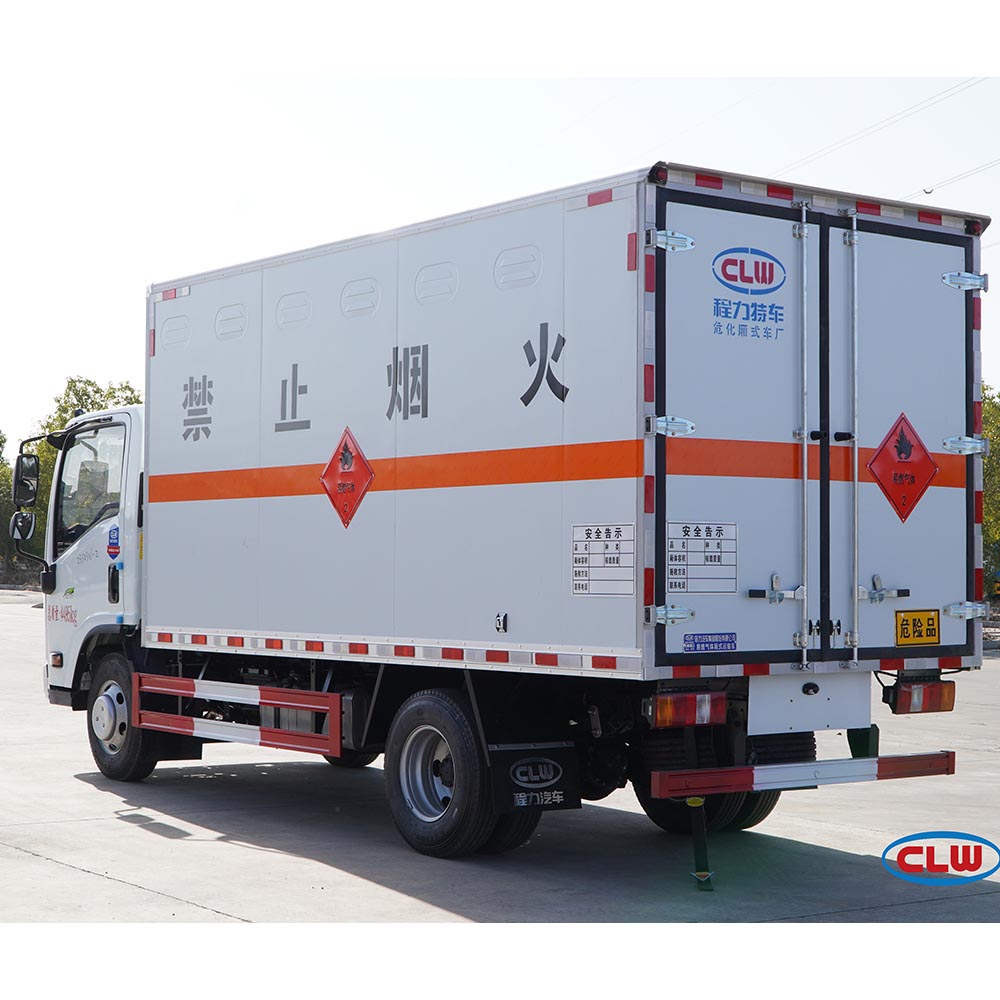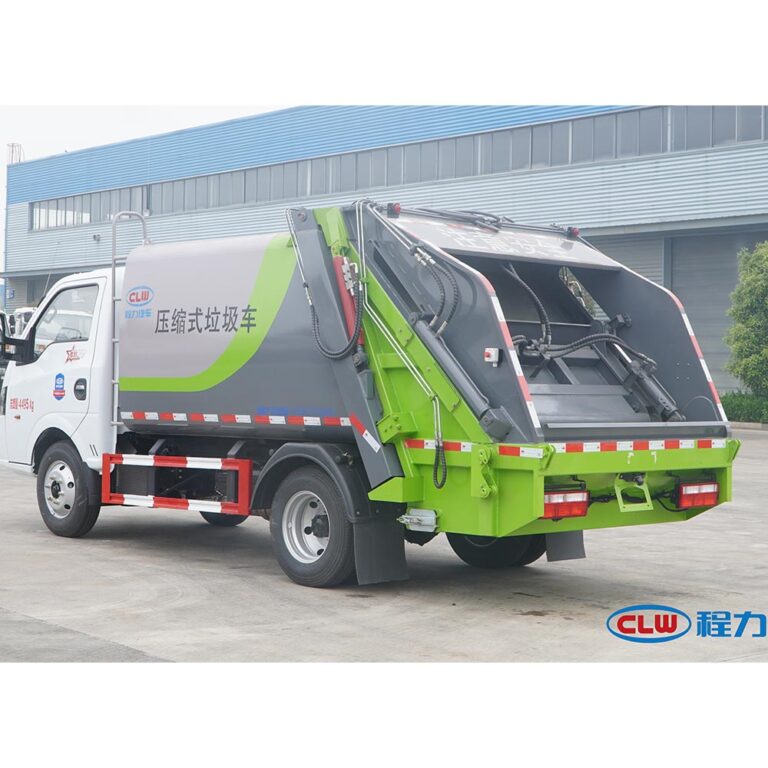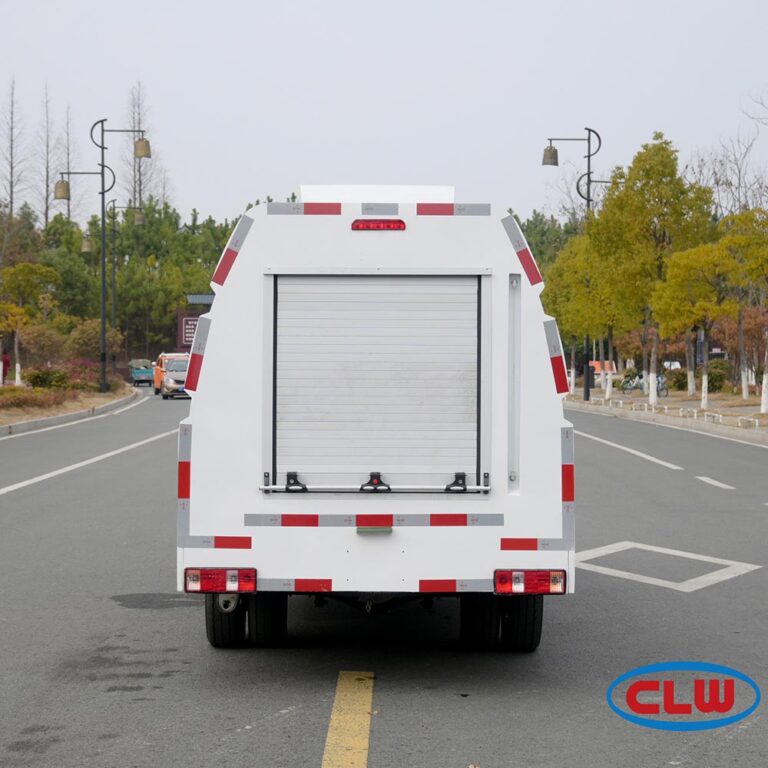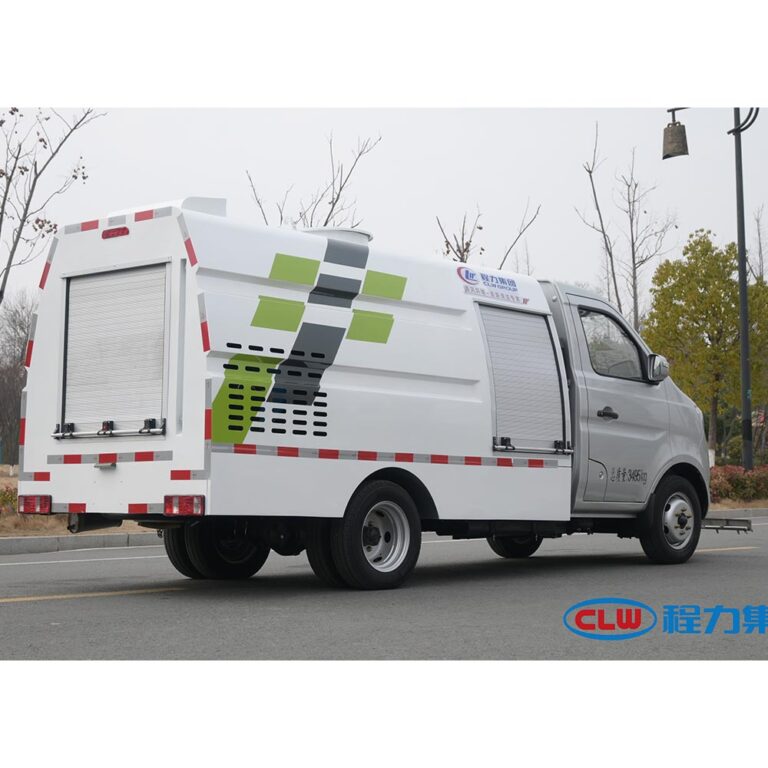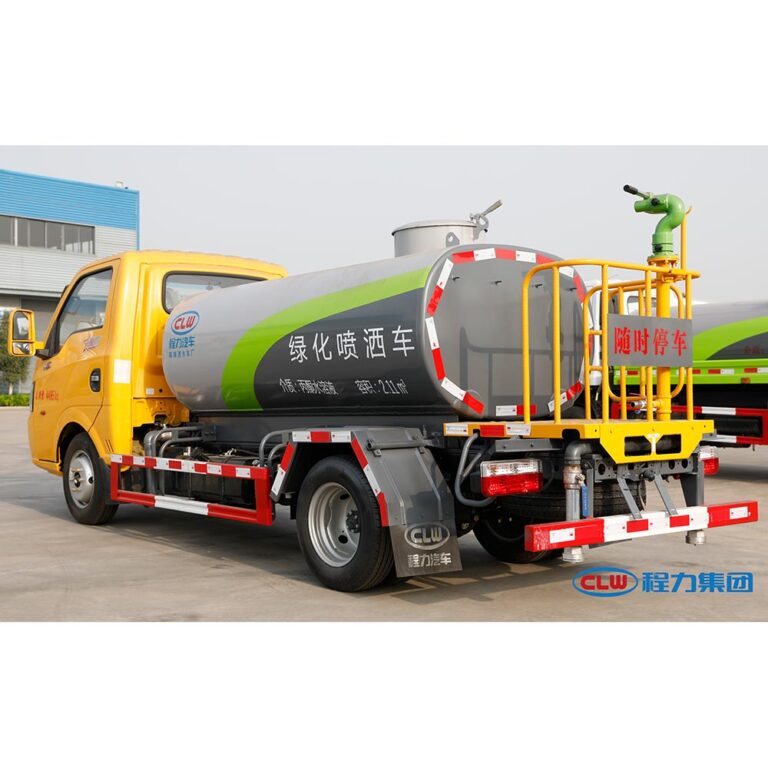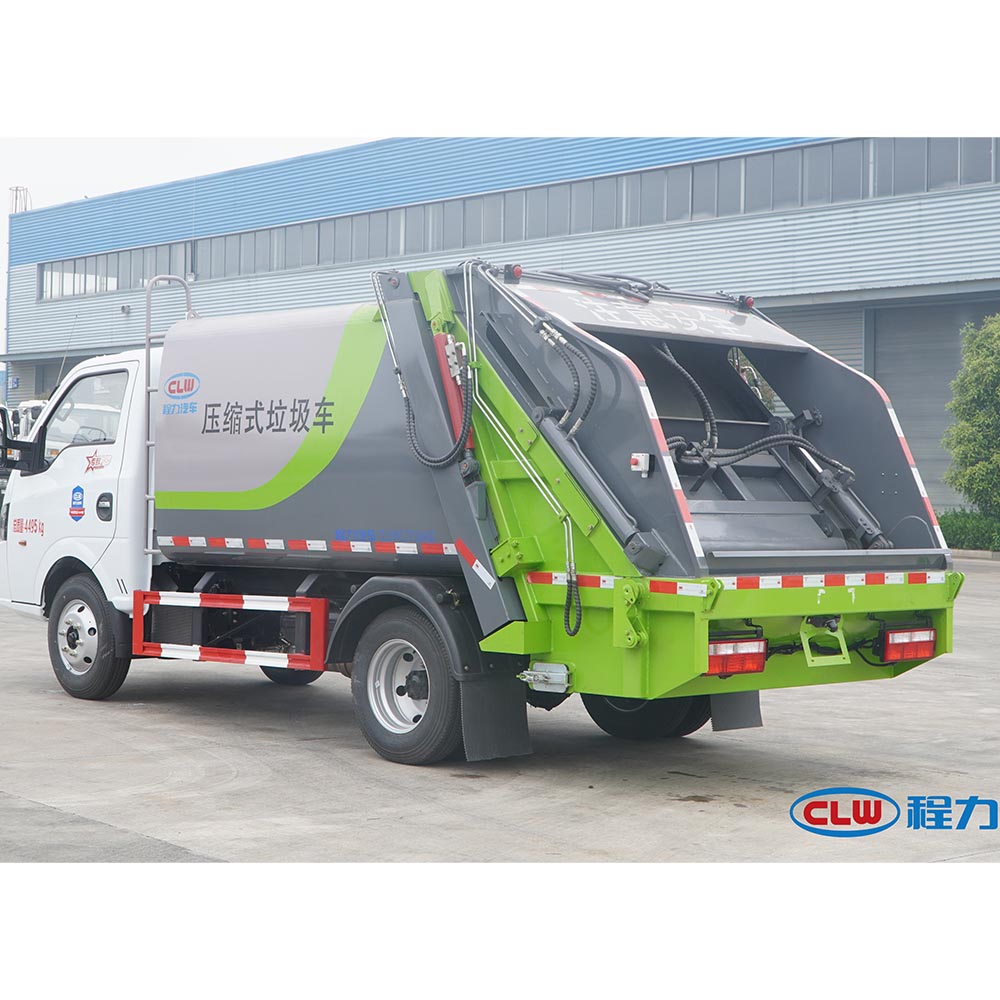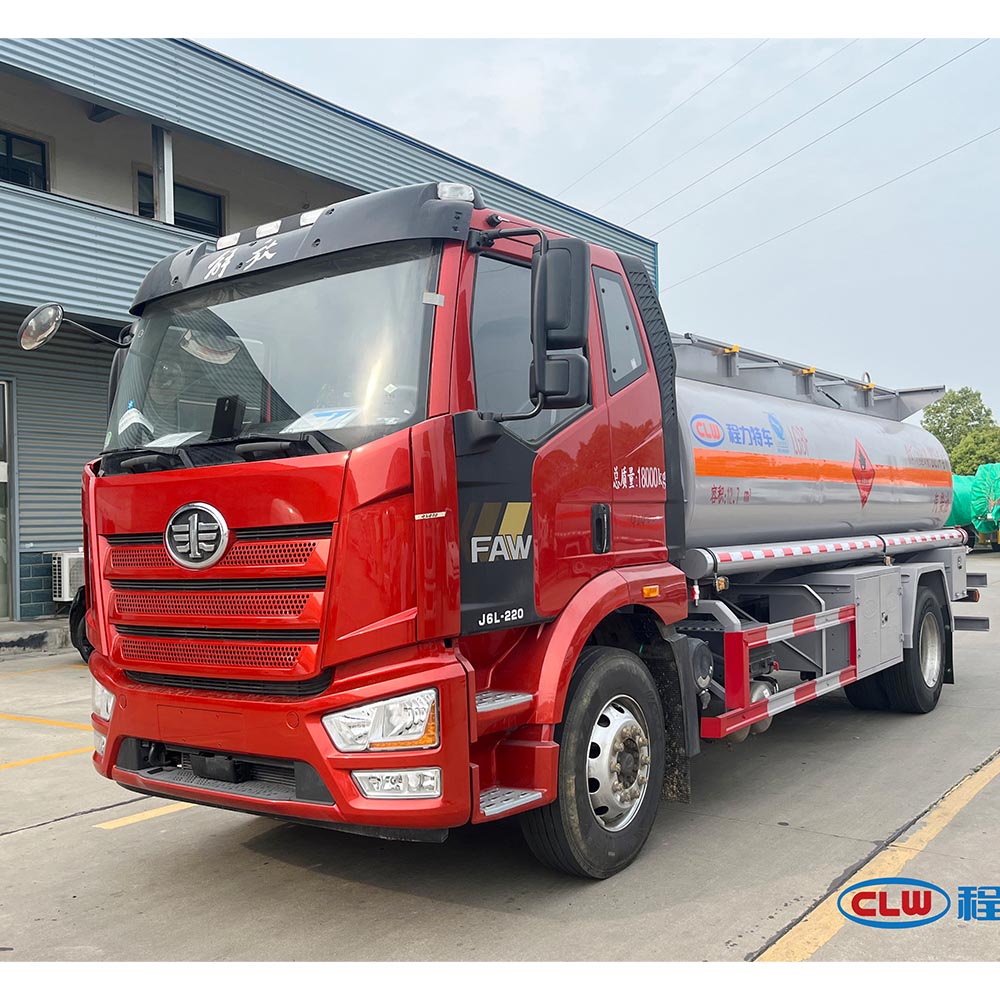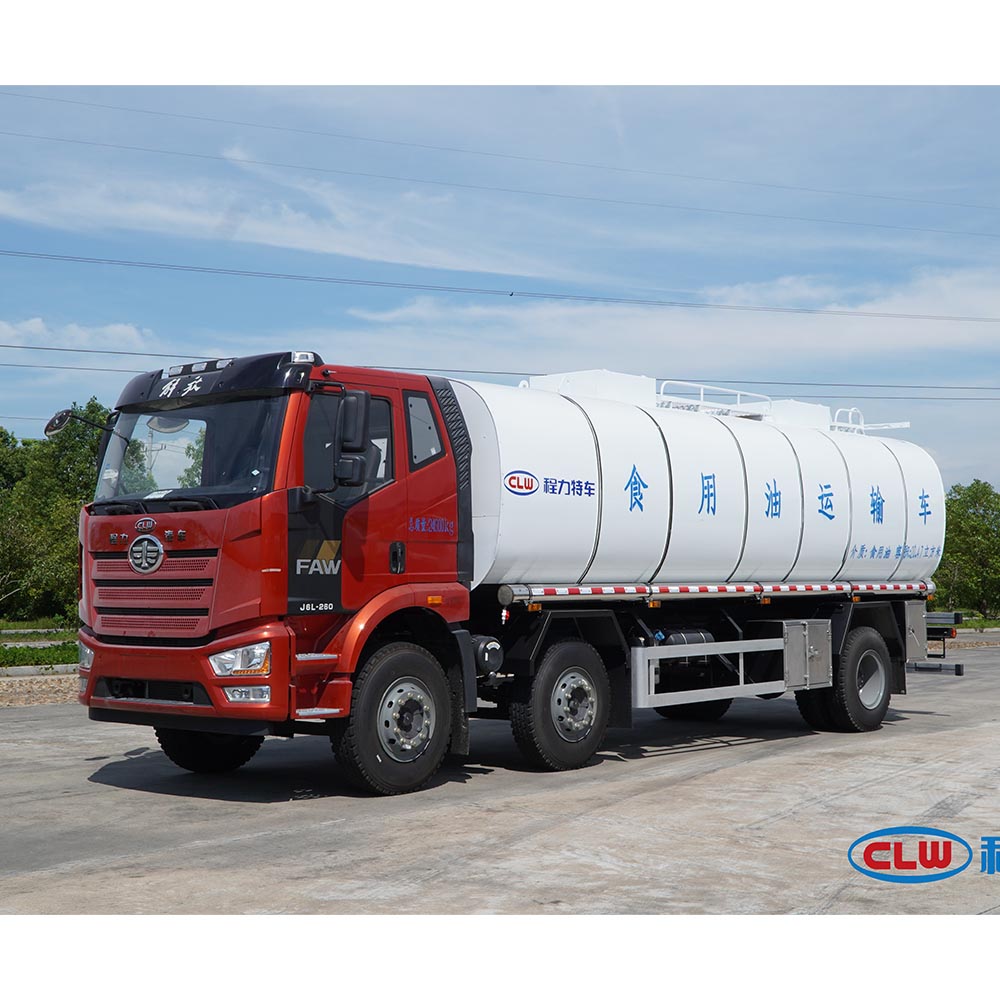-
Parc industriel automobile de Chengli
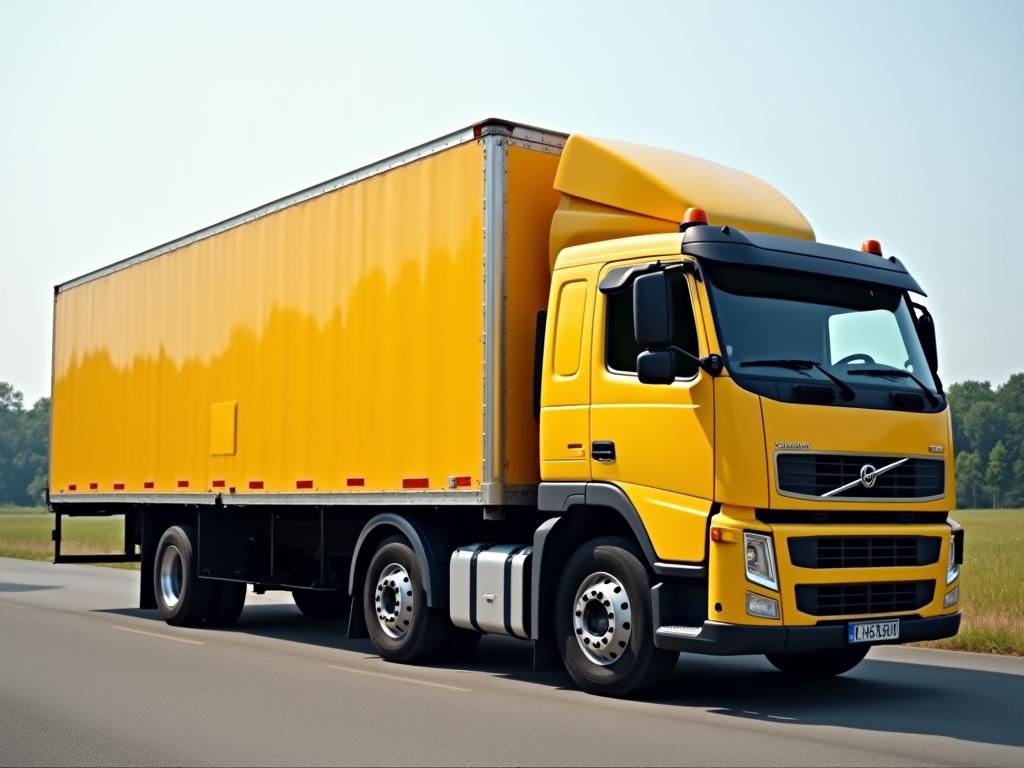
Qu'est-ce qu'un camion-caisse léger ?
Comprendre que les options de camions-citernes légers varient considérablement, des camions légers aux camions utilitaires lourds, en passant par les véhicules utilitaires lourds et les véhicules commerciaux.sing Box Truck Types, Sizes, and Classifications for Your Business Needs
Cet article explore le monde diversifié des camions à caisse, en fournissant un aperçu approfondi de leurs types, tailles, classifications et applications. Ces éléments sont essentiels pour sélectionner le bon camion commercial. Que vous soyez responsable logistique, propriétaire d'une petite entreprise ou membre d'une grande société, la compréhension de ces détails vous aidera à prendre des décisions éclairées lors de la sélection ou de la location d'un camion-caisse. En tant qu'usine leader dans la fabrication de camions-citernes, nous avons pour objectif de vous offrir des informations qui vous aideront à choisir le bon camion pour répondre à vos besoins spécifiques, afin de garantir l'efficacité et la rentabilité de vos opérations.
Table des matières
Quels sont les différents types de camions-citernes ?
Les camions-caisses, également appelés camions porteurs, sont des véhicules polyvalents qui jouent un rôle crucial dans divers secteurs d'activité. Il existe plusieurs les différents types de camions-citernesChacun d'entre eux est conçu à des fins spécifiques. Le type le plus courant est le standard camion-caisseLa zone de chargement rectangulaire est essentielle pour comprendre les limites d'un fourgon. box. Ces Les camions sont conçus pour transporter un large éventail de marchandises, du mobilier aux marchandises de détail.
Un autre type populaire est le camion frigorifiquequi dispose d'un système d'isolation de l'eau de pluie. cargaison et une unité de réfrigération pour maintenir les denrées périssables au frais pendant le transport. Ces camions frigorifiques sont essentiels pour les distributeurs d'aliments et de boissons et les sociétés pharmaceutiques. En outre, il existe des types spécialisés tels que camions-citernes à plateau et camions-citernesIls sont conçus pour répondre à des besoins spécifiques tels que le transport de matériaux de construction ou la mise à disposition d'un atelier mobile. D'autres types de camion-caisse sont Camion de transport d'huile alimentaire et Camion de transport d'équipements explosifs. En tant qu'usine de fabrication de camions-citernes, nous comprenons que chaque type de camion-citernes doit être utilisé de la même manière. camion a une fonction unique, et il est essentiel de choisir la bonne pour optimiser vos opérations. Ces camions sont couramment utilisés par les entreprises de logistique, les détaillants et les sociétés de déménagement pour assurer un transport sûr et efficace des marchandises.
Comment sont classés les camions-citernes ?
Classification des camions est principalement basée sur la le poids nominal brut du véhicule (PNBV)qui est le poids maximal autorisé pour le camiony compris sa capacité de chargement et le type de camions mobiles. cargaisonLes véhicules sont équipés d'un système de contrôle de la température, des passagers et du carburant. Camions légers ont généralement un PTAC allant jusqu'à 14 000 livres. Il s'agit par exemple de petits camions-citernes et fourgonnettes cargo couramment utilisé pour les livraisons locales et les petits déménagements. Camions de moyen tonnage ont un PTAC compris entre 14 001 et 26 000 livres. Ces véhicules camions sont souvent utilisés pour des livraisons plus importantes, telles que le transport de marchandises entre des entrepôts ou la livraison de gros appareils.
Camions lourds ont un PNBV de 26 001 livres ou plus. Ces camions-citernes lourds sont conçus pour le transport longue distance et peuvent supporter des charges importantes. Le système de classification aide les entreprises à déterminer les camion pour répondre à leurs besoins, en garantissant la conformité aux réglementations et en optimisant l'efficacité opérationnelle. En tant que fabricant, nous classons nos camions-citernes sur la base de ces classifications, en fournissant des spécifications claires pour aider les clients à prendre des décisions en connaissance de cause. Les camions sont classés dans différentes catégories en fonction de leur PTAC, ce qui permet de déterminer leur utilisation appropriée et les exigences réglementaires.
Tableau de classification des camions
| Classification | PTAC (livres) | Utilisations courantes |
| Travaux légers | Jusqu'à 14 000 | Livraisons locales, petits déménagements, appels de service |
| Service moyen | 14,001 – 26,000 | Livraisons plus importantes, transport en entrepôt, commerce de détail |
| Usage intensif | 26 001 et plus pour les camions-citernes légers | Transport longue distance, équipement lourd, marchandises en vrac |
Qu'est-ce que le poids total autorisé en charge (PTAC) et pourquoi est-il important ?
Poids total autorisé en charge (PTAC) est un facteur critique dans comprendre le camion-boîte capacités et limites. Le PTAC est le poids maximal qu'un véhicule peut supporter. camion peut transporter en toute sécurité, y compris le poids du véhicule lui-même, cargaisonLe dépassement du PNBV peut entraîner des risques pour la sécurité, des dommages au véhicule et des sanctions légales. Le dépassement du PTAC peut entraîner des risques pour la sécurité, des dommages au véhicule et des sanctions légales. Connaître le PNBV permet de déterminer le niveau de sécurité du véhicule. capacité de charge d'un camionqui est le poids maximal de cargaison qu'il peut transporter.
Pour les entreprises, il est essentiel de comprendre le PTAC pour choisir le bon véhicule. camion pour des tâches spécifiques. Par exemple, un boîte pour travaux légers avec un PTAC inférieur convient pour les charges plus légères et les livraisons urbaines, tandis qu'un robuste camion est nécessaire pour le transport d'objets volumineux ou lourds sur de longues distances. En tant que fabricant de camions-citernes, nous fournissons des informations détaillées sur le PNBV pour chaque modèle, ce qui permet à nos clients de choisir un camion-citernes de qualité. camion qui réponde à leurs besoins opérationnels et soit conforme aux normes de sécurité. Le PTAC est une spécification de sécurité cruciale qui détermine le poids maximal d'un véhicule. camion peut gérer, ce qui influe sur son capacité de charge et la performance globale.
Quelles sont les tailles courantes des camions-citernes ?
Dimensions des camions-citernes varient considérablement pour répondre aux différents besoins en matière de transport. Les dimensions courantes sont de 10, 16, 20 et 26 pieds. camions-citernes. Une plaque de 10 pieds camion-caisse est idéal pour les petits déménagements ou les livraisons, comme le transport du contenu d'un studio. A Camion-boîte de 16 pieds peut contenir le contenu d'un appartement d'une ou deux chambres, ce qui en fait un choix populaire pour les déménagements résidentiels. Les plus grandes tailles, comme les modèles de 20 et 26 pieds, peuvent être utilisées pour les déménagements résidentiels. camions-citernes sont adaptés à un usage commercial, capables de transporter de grandes quantités de marchandises ou le contenu d'une maison à plusieurs chambres.
Les taille du camion-caisse que vous choisissez doit s'aligner sur le volume et le poids du camion commercial. cargaison que vous avez l'intention de transporter. Plus petit camions-citernes offrent une meilleure manœuvrabilité dans les zones urbaines, tandis que les plus grandes camions offrent une plus grande capacité pour les charges plus volumineuses. Dans notre usine de fabrication, nous proposons une gamme de dimensions des camions-citernes pour répondre aux divers besoins des clients, ce qui vous permet de trouver la solution idéale pour vos activités. Les camions-citernes existent en différentes taillesChacun d'entre eux est conçu pour traiter des volumes et des poids différents. cargaison. Voici quelques-unes des tailles les plus courantes de camions-citernes et leurs utilisations typiques :
- Camion-boîte de 10 pieds : Idéal pour les petits déménagements, comme le transport du contenu d'un studio ou d'un petit bureau. Ces camions sont faciles à manœuvrer dans les espaces urbains restreints et sont souvent utilisés pour les livraisons locales.
- Camion-boîte de 16 pieds : Convient au déménagement du contenu d'un appartement d'une ou deux chambres. Ils sont très appréciés des entreprises de déménagement et des particuliers qui s'installent dans un nouveau logement.
- Camion-boîte de 20 pieds : Couramment utilisés à des fins commerciales, ces camions peuvent supporter des charges plus importantes, comme le transport de marchandises entre des entrepôts ou la livraison de gros appareils et de meubles.
- Camion-boîte de 26 pieds : Il s'agit de la plus grande taille de camion-boîte standard, conçue pour un usage intensif, tel que le déplacement du contenu d'une maison à plusieurs chambres ou le transport de grandes quantités de marchandises pour les entreprises.
Quels sont les éléments à prendre en compte lors du choix d'un camion-boîte pour mon entreprise ?
Choisir le bon camion-caisse pour votre entreprise implique plusieurs considérations clés. Tout d'abord, évaluez la nature de votre cargaison. Si vous transportez des denrées périssables, un camion frigorifique est indispensable. Pour les articles volumineux ou lourds, un robuste camion avec un PTAC élevé est nécessaire. Tenez compte des distances typiques que vous allez parcourir ; camions-citernes légers sont idéales pour les trajets urbains courts, tandis que les camions lourds sont mieux adaptés au transport longue distance.
Un autre facteur important est la fréquence d'utilisation. Si vous avez besoin d'un camion régulièrement, il peut être plus rentable d'en acheter un que de le louer. Toutefois, pour un usage occasionnel, location de camions-citernes peut être une option plus pratique. En outre, il convient d'évaluer les camion-caisse des caractéristiques telles que des portes élévatrices, des rampes et des étagères intérieures, qui peuvent améliorer l'efficacité du chargement et du déchargement. En tant que fabricant de camions-citernes, nous proposons des options personnalisables pour répondre aux besoins spécifiques de l'entreprise, garantissant ainsi que votre camion est équipé pour répondre à vos besoins opérationnels uniques. Voici quelques éléments à prendre en compte :
- Type de chargement: Qu'allez-vous transporter ? Les denrées périssables, les machines lourdes ou les objets délicats nécessitent des spécifications différentes pour les camions.
- Distance: Les trajets courts et fréquents en zone urbaine peuvent nécessiter l'utilisation d'une camionnette légère, tandis que les trajets longue distance conviennent mieux aux camions lourds.
- La fréquence d'utilisation peut déterminer si vous avez besoin d'un camion moyen ou lourd.: Une utilisation régulière peut justifier l'achat d'un camion, tandis que des besoins occasionnels peuvent être mieux satisfaits par la location.
Ai-je besoin d'un permis de conduire commercial pour conduire un camion-caisse ?
Que vous avoir besoin d'un permis de conduire commercial (CDL) à conduire un camion-citerne dépend des spécifications du poids total autorisé en charge (PTAC) du camion. En général, si le PNBV est égal ou supérieur à 26 001 livres, un CDL est nécessaire. Cela signifie que la plupart des camions-citernes lourds nécessitent un CDL, tandis que léger et de nombreux camions-citernes de taille moyenne ne le font pas. Toutefois, les réglementations peuvent varier d'un État à l'autre, il est donc essentiel de vérifier les lois locales.
Pour les entreprises, il est essentiel de s'assurer que les conducteurs possèdent les permis appropriés afin de respecter la législation et d'assurer la sécurité. Les programmes de formation peuvent aider les conducteurs à obtenir leur CDL et à acquérir les compétences nécessaires à la conduite d'un véhicule. camions lourds en toute sécurité. En tant que fabricant, nous fournissons des ressources et des informations pour aider nos clients à s'y retrouver dans ces exigences, en veillant à ce que leurs conducteurs soient titulaires d'un permis et d'une formation adéquats. La plupart des léger et de nombreux camions-citernes de taille moyenne ne requièrent pas de CDL, mais il est essentiel de vérifier les réglementations spécifiques à chaque État.
Quel est le poids d'un camion-boîte et quelle est son incidence sur la capacité de charge utile ?
Les poids du camion-caisse varie en fonction de sa taille et de sa construction. Un bâtiment typique de 10 pieds camion-caisse peut peser environ 6 000 livres, tandis qu'un véhicule de 26 pieds de long peut peser environ 2 000 livres. camion-caisse peut peser jusqu'à 16 000 livres. Le poids du camion est un facteur crucial dans la détermination de son capacité de chargequi est le poids maximal de cargaison qu'il peut transporter. Pour calculer la capacité de charge, soustraire le du camion poids à vide (poids sans cargaison ou de passagers) de son PNBV.
Par exemple, si un camion a un PTAC de 26 000 livres et pèse 12 000 livres, son capacité de charge est de 14 000 livres. Il est essentiel de comprendre ces chiffres pour garantir un chargement sûr et efficace. La surcharge d'un camion peut entraîner des accidents, des dommages au véhicule et des amendes. En tant que fabricant de camions-citernes, nous fournissons des spécifications de poids détaillées pour chaque modèle, afin d'aider nos clients à maximiser leur productivité. cargaison tout en restant dans des limites de sécurité. Connaître les poids du camion-caisse est essentiel pour le calcul de la capacité de charge et de garantir un chargement sûr et efficace.
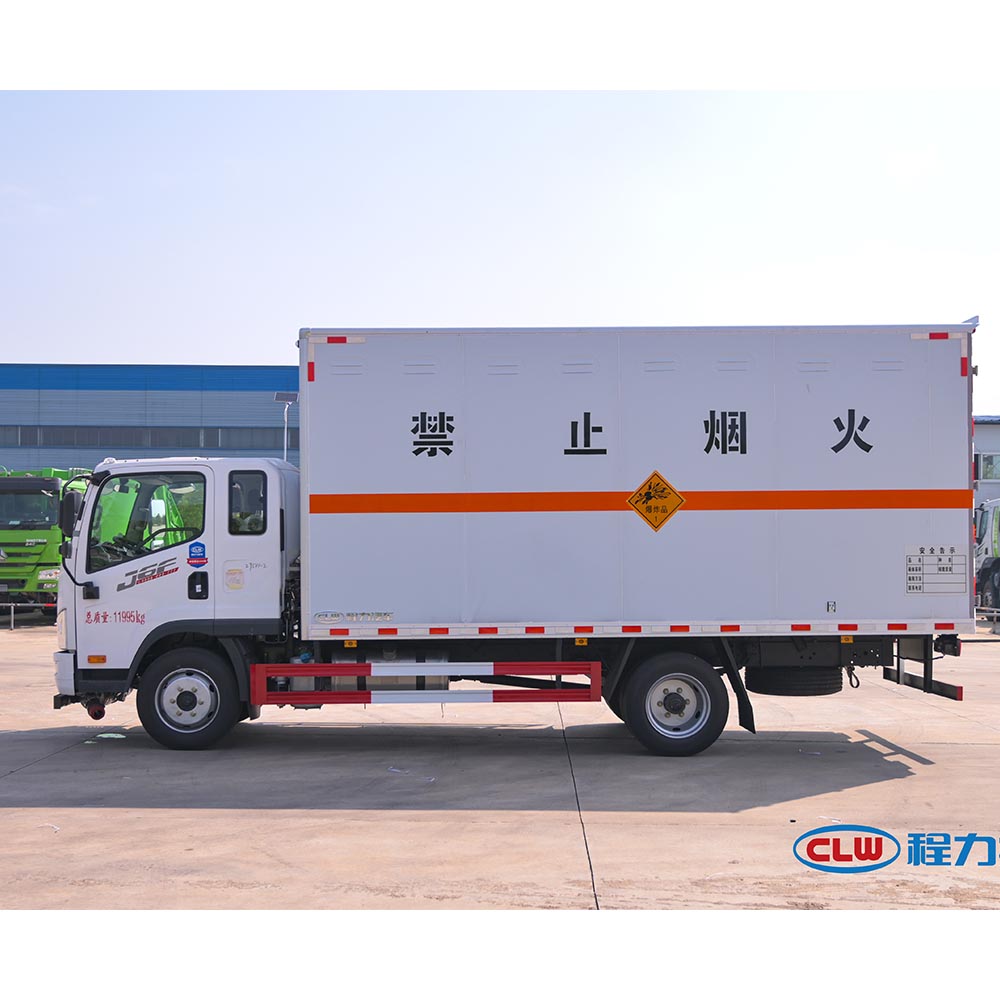
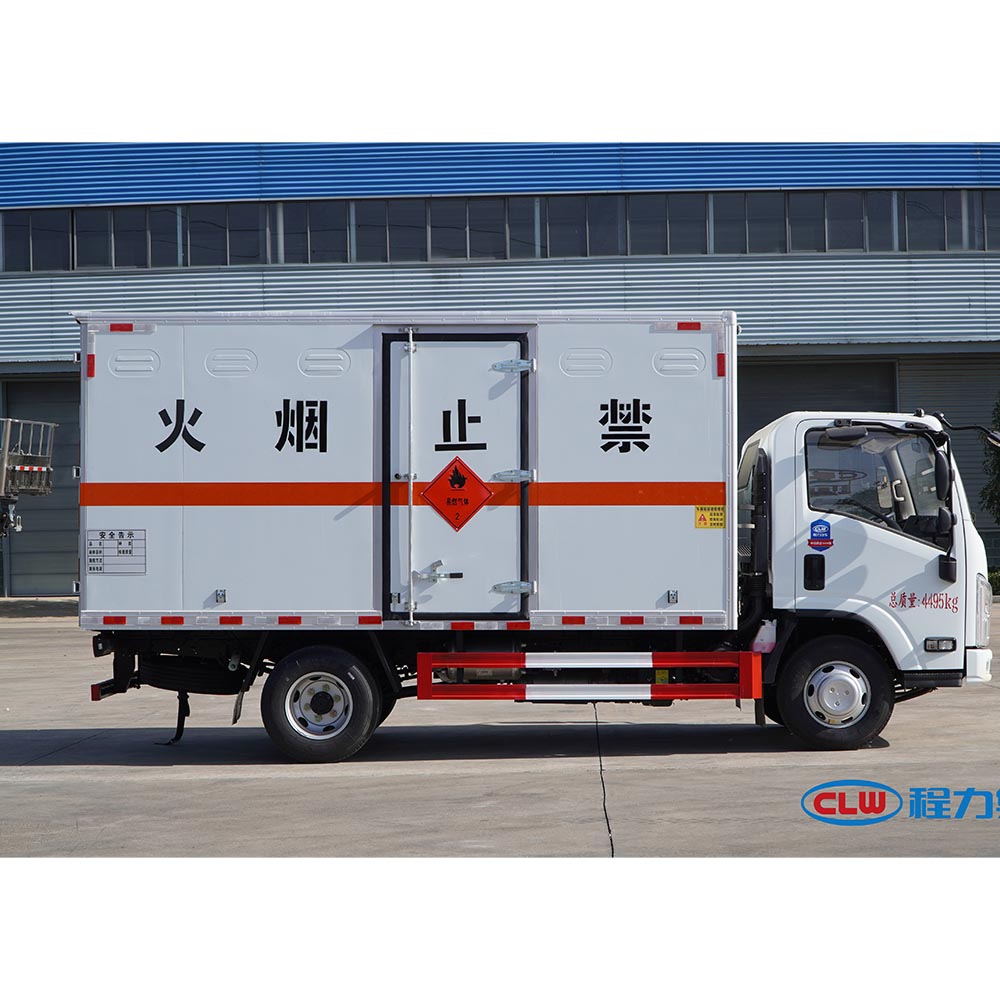
Pourquoi les camions frigorifiques sont-ils indispensables à certaines industries ?
Camions frigorifiques sont essentiels pour les industries qui transportent des denrées périssables, telles que les denrées alimentaires et les produits pharmaceutiques. Ces camions caractéristique isolée cargaison Les zones de stockage et les unités de réfrigération maintiennent une température constante, évitant ainsi la détérioration et garantissant la qualité des produits. Pour les distributeurs alimentaires, camions frigorifiques sont essentiels pour la livraison de produits frais, de produits laitiers et de produits surgelés aux détaillants et aux restaurants.
De même, les entreprises pharmaceutiques s'appuient sur camions frigorifiques pour transporter des médicaments et des vaccins sensibles à la température. La capacité de contrôler la cargaison L'environnement rend ces camions indispensable pour maintenir l'intégrité des denrées périssables pendant le transport. En tant que fabricant de camions frigorifiquesNous comprenons le rôle essentiel que jouent ces véhicules dans la chaîne d'approvisionnement et offrons une technologie de réfrigération avancée pour répondre aux normes de l'industrie. Camions frigorifiques sont essentiels pour maintenir la qualité des denrées périssables pendant le transport et jouent un rôle crucial dans les industries alimentaires et pharmaceutiques. En voici quelques-uns : camions-citernes de taille moyenne Camion frigorifique haut de gamme JAC, Camion frigorifique Foton Auman à toit surélevé et à double couchette
Quels sont les avantages de la location de camionnettes ?
Location de camionnettes offrent de nombreux avantages, en particulier pour les entreprises qui ont des besoins de transport occasionnels ou saisonniers. La location d'un camion-caisse élimine les coûts initiaux d'achat et les dépenses permanentes d'entretien et d'assurance. Les contrats de location peuvent être adaptés à des besoins spécifiques, qu'il s'agisse d'une camion pour quelques heures, une journée ou plus, en particulier pour les camions-citernes de taille moyenne. Des entreprises comme Penske proposent une gamme de camions-citernes légers à louer, offrant flexibilité et commodité.
Location de camions Penske comprennent souvent des caractéristiques supplémentaires telles que l'assistance routière, les hayons élévateurs et les rampes d'accès, ce qui rend l'expérience de la location transparente et efficace. Pour les entreprises, la location peut être une solution rentable qui leur permet d'accéder à des véhicules bien entretenus et fiables. camions sans l'engagement à long terme de la propriété. En tant que fabricant de camions-citernes, nous reconnaissons la valeur des services de location et nous nous associons à des fournisseurs réputés pour garantir à nos clients l'accès à des services de location de haute qualité. camions chaque fois qu'ils en ont besoin. Location de camionnettes constituent une solution souple et rentable pour les entreprises qui ont des besoins de transport occasionnels ou saisonniers. En voici quelques-unes : Camion de ravitaillement Furika 8.5m³ réservoir de carburant, moteur 170HP, Dongfeng Plate Refueling Truck 130 HP Diesel Performance
Où puis-je trouver des camions d'occasion et que dois-je rechercher ?
Camions d'occasion peut être une option rentable pour les entreprises qui cherchent à étendre leur flotte sans avoir à supporter le coût élevé de nouveaux véhicules. Il existe de nombreuses sources pour trouver des camions d'occasion à vendreLes véhicules utilitaires d'occasion peuvent être achetés chez des concessionnaires, sur des places de marché en ligne ou dans des ventes aux enchères. Lors de l'achat d'un véhicule utilitaire d'occasion véhicule utilitaire véhicule utilitaire véhicule utilitaire véhicule utilitaire camion-caisseIl est donc essentiel de procéder à une inspection minutieuse pour évaluer son état. Vérifiez que le moteur, la transmission, les freins et les pneus ne présentent pas de signes d'usure.
Inspecter les cargaison et s'assurer que tout équipement spécialisé, tel que les unités de réfrigération, est en bon état de fonctionnement. La demande d'un rapport sur l'historique du véhicule peut fournir des informations précieuses sur l'état du véhicule. du camion Le passé du véhicule, y compris les accidents et les dossiers d'entretien. En tant que constructeur, nous proposons des véhicules d'occasion certifiés camions-citernes qui ont fait l'objet d'inspections et de remises en état rigoureuses, offrant ainsi une alternative fiable et rentable aux produits neufs. camions. Camions d'occasion offrent une option économique pour l'expansion de votre flotte, mais des inspections approfondies et des rapports sur l'historique des véhicules sont essentiels.
FAQ
Quelle est la capacité de charge utile typique d'un camion-boîte de taille moyenne ?
Un véhicule de taille moyenne camion-caisse a généralement une capacité de charge utile comprise entre 5 000 et 12 000 livres, en fonction de son PTAC et de son poids à vide.
Puis-je louer une camionnette pour un déménagement en aller simple ?
Oui, de nombreuses sociétés de location, y compris Penske, proposent des allers simples. location de camions-citernes vous permettant ainsi de récupérer les camion dans un endroit et le rendre dans un autre.
Existe-t-il des restrictions quant à ce que je peux transporter dans une camionnette ?
Tandis que camions-citernes sont polyvalents, il existe des restrictions concernant le transport de matières dangereuses. Vérifiez toujours les réglementations locales et les contrats de location pour connaître les directives spécifiques.
Comment choisir entre une camionnette et un fourgon ?
Le choix entre un camion-caisse et un fourgonnette cargo dépend du volume et du poids de votre cargaison. Fourgonnettes conviennent pour des charges plus petites et offrent une meilleure maniabilité, tandis que les camions-citernes offrent une plus grande capacité et conviennent mieux aux articles plus volumineux ou encombrants.
Quel est l'entretien nécessaire pour un camion-boîte ?
L'entretien régulier d'un camion-caisse comprend la vérification et la vidange de l'huile, l'inspection des freins et des pneus, et la vérification du bon fonctionnement du moteur et de la transmission. Pour les camions frigorifiquesL'unité de réfrigération doit également faire l'objet d'un entretien régulier.
Est-il préférable d'acheter ou de louer une camionnette ?
La décision d'acheter ou de louer un camion-caisse dépend des besoins de votre entreprise et de votre situation financière. L'achat permet de réaliser des économies à long terme et offre des avantages en termes de propriété, tandis que la location permet de réduire les coûts initiaux et de bénéficier d'une plus grande souplesse.
Principaux enseignements
- Comprendre camion-caisse Il est essentiel de connaître les types, les tailles et les classifications des véhicules pour choisir celui qui répondra aux besoins de votre entreprise.
- Poids total autorisé en charge (PTAC) est un facteur clé dans la détermination d'une du camion et les exigences légales.
- Communs dimensions des camions-citernes La gamme va de 10 pieds à 26 pieds, chacun convenant à des volumes et des poids différents. cargaison.
- Camions frigorifiques sont essentiels pour le transport des denrées périssables, le maintien de la qualité et de la sécurité des produits.
- Location de camionnettes offrent flexibilité et rentabilité pour les besoins de transport occasionnels ou saisonniers.
- Lors de l'achat d'un produit d'occasion camionsLes inspections approfondies et les rapports sur l'historique des véhicules sont essentiels pour garantir la fiabilité et la sécurité.
- En tant que fabricant de premier plan, nous nous engageons à fournir des produits de haute qualité. camions-citernes et une assistance complète pour aider nos clients à prendre des décisions éclairées et à optimiser leurs opérations.
Contactez-nous dès aujourd'hui pour en savoir plus sur nos produits et sur la manière dont nous pouvons vous aider à répondre à vos besoins en matière de transport.
